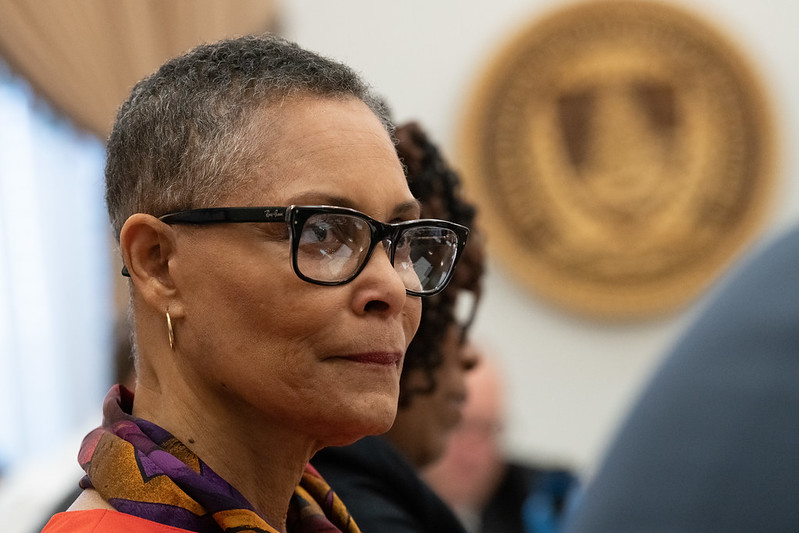In her resignation letter, she cited a desire to “minimize stress and abandon the daily commute” as reasons for leaving. Earp has been trailed by accusations of poor management since her nomination.
On Wednesday, the Department of Agriculture’s (USDA) top civil rights official Naomi Earp issued a letter to her staff announcing her resignation on January 31, 2020. The move marks the end of a brief and contentious tenure within the agency, during which Earp faced extensive criticism from Democratic lawmakers for her stances on discrimination and harassment.
The letter, first reported by Politico, is a strangely worded missive that begins with a rumination on the word “stretch.” Presented without comment: “As you know, 2019 was a year of stretching. Stretch is one of those words that can be both a noun and a verb. As a noun, it can be a reference to time … as in ‘I was here for a short stretch.’ I really like the word stretch as a verb. As in expand, lengthen, growth, develop, enlarge, broaden, or increase. Both as individuals and as a team, [the Office of the Assistant Secretary for Civil Rights] stretched over the last year.”
President Donald Trump first tapped Earp to be the agency’s assistant secretary for civil rights in early 2018, but didn’t get the Senate’s approval before the end of the legislative calendar. Earp was re-nominated in 2019. In the meantime, Secretary of Agriculture Sonny Perdue appointed Earp to be deputy assistant secretary for civil rights, a maneuver that allowed her to work in the office without Senate confirmation.
“Whoever next fills this important role must understand the importance of strong civil rights enforcement to ensure everyone who looks to USDA to stand up for them can trust that will happen.”
In the past year, Earp made a number of questionable comments as deputy assistant. When addressing the issue of mistreatment against women in USDA’s Forest Service at her Senate Ag Committee confirmation hearing, Earp said she would attempt to “separate sexual assault from the silliness that goes on as a part of harassment,” Politico reported. During a House Ag Committee meeting, Earp suggested that some federal employees file discrimination complaints as a way to “punish managers and supervisors,” FERN reported. During her confirmation hearing in 2018, New Food Economy contributor Nate Rosenberg outlined a litany of discrimination concerns Earp raised over her career from a number of employees that she oversaw. In 2002, an NAACP task force found that Earp cost the government more than $390,000 in payouts as a result of discrimination complaints.
At the time, this assertion drew the ire of Democratic congresswoman Marcia Fudge, chair of a House agriculture subcommittee. Last night, Fudge issued a comment following Earp’s resignation announcement: “Whoever next fills this important role must understand the importance of strong civil rights enforcement to ensure everyone who looks to USDA to stand up for them can trust that will happen.”
A retired USDA employee said the departments approach to civil rights is a deeply entrenched issue that extends beyond Earp.
Over the past decades, black farmers have detailed numerous allegations of mistreatment, from withheld loans to ignored discrimination complaints. In recent years, a disturbing snapshot of systemic racism within the department has emerged. Ron Cotton, president of the USDA Coalition of Minority Employees, a retired USDA employee who knows Earp professionally, said that while Earp has failed to make notable progress in her role, the USDA approach to civil rights is a deeply entrenched issue that extends beyond her.
In her resignation letter, Earp vaguely alludes to “challenges” during her time at USDA and lacking “all the tools and cooperation needed to be successful.” (She did not respond to a request for comment.)
In an emailed statement, a USDA spokesperson thanked Earp for her work and said that the department “will undertake a careful and thorough search for new leadership for the Office of the Assistant Secretary for Civil Rights.”











